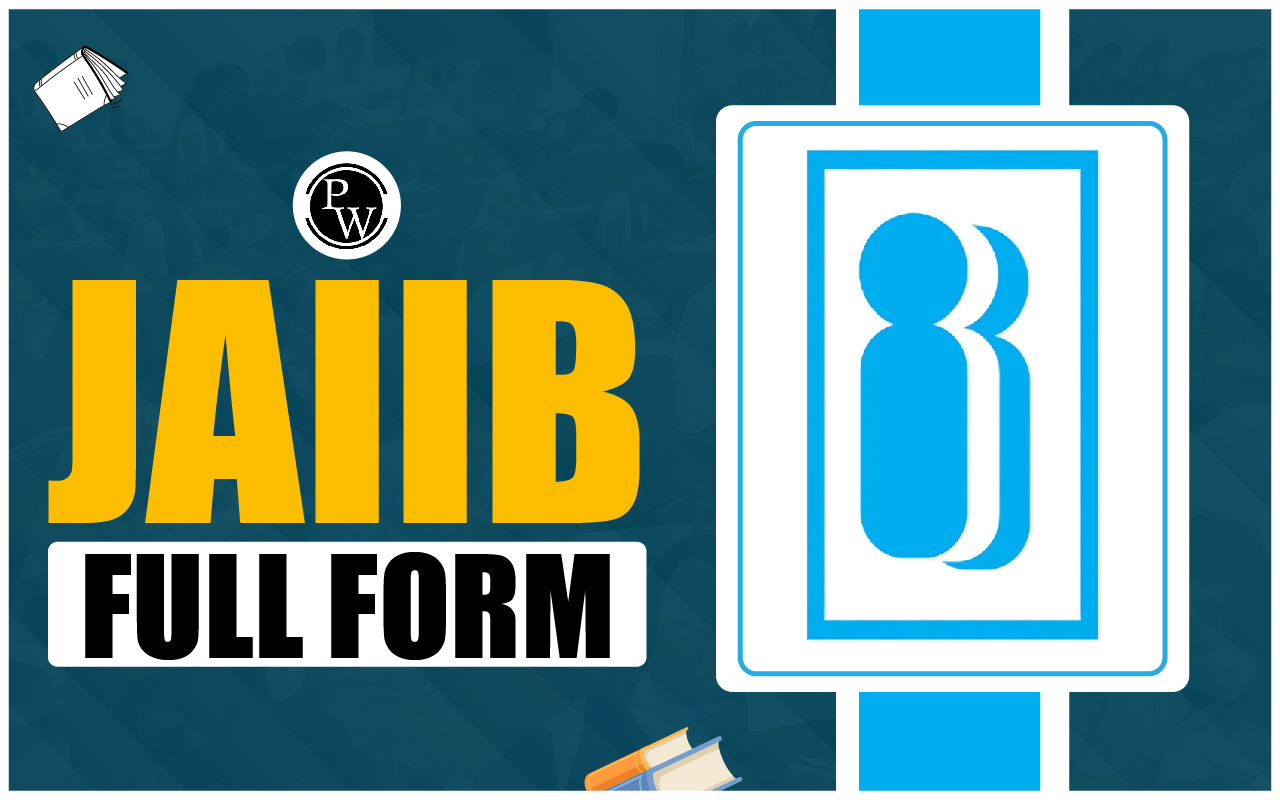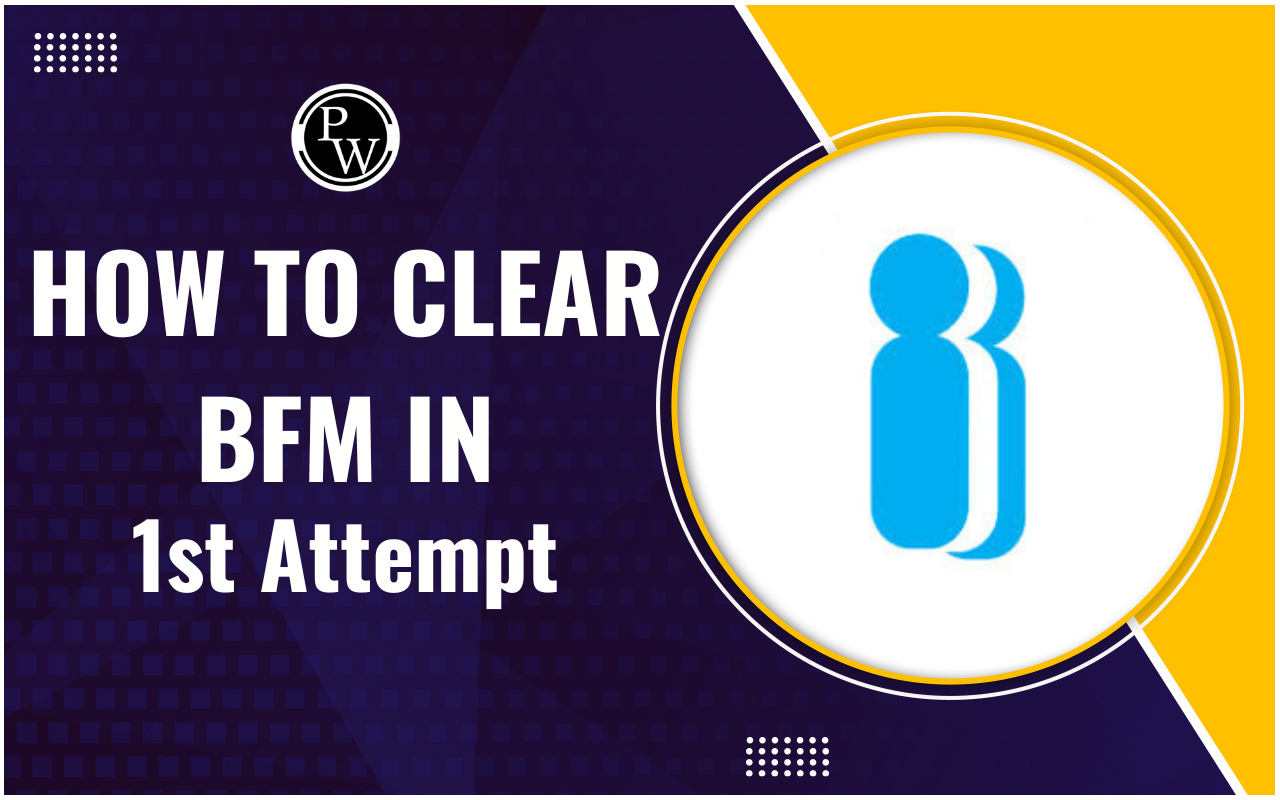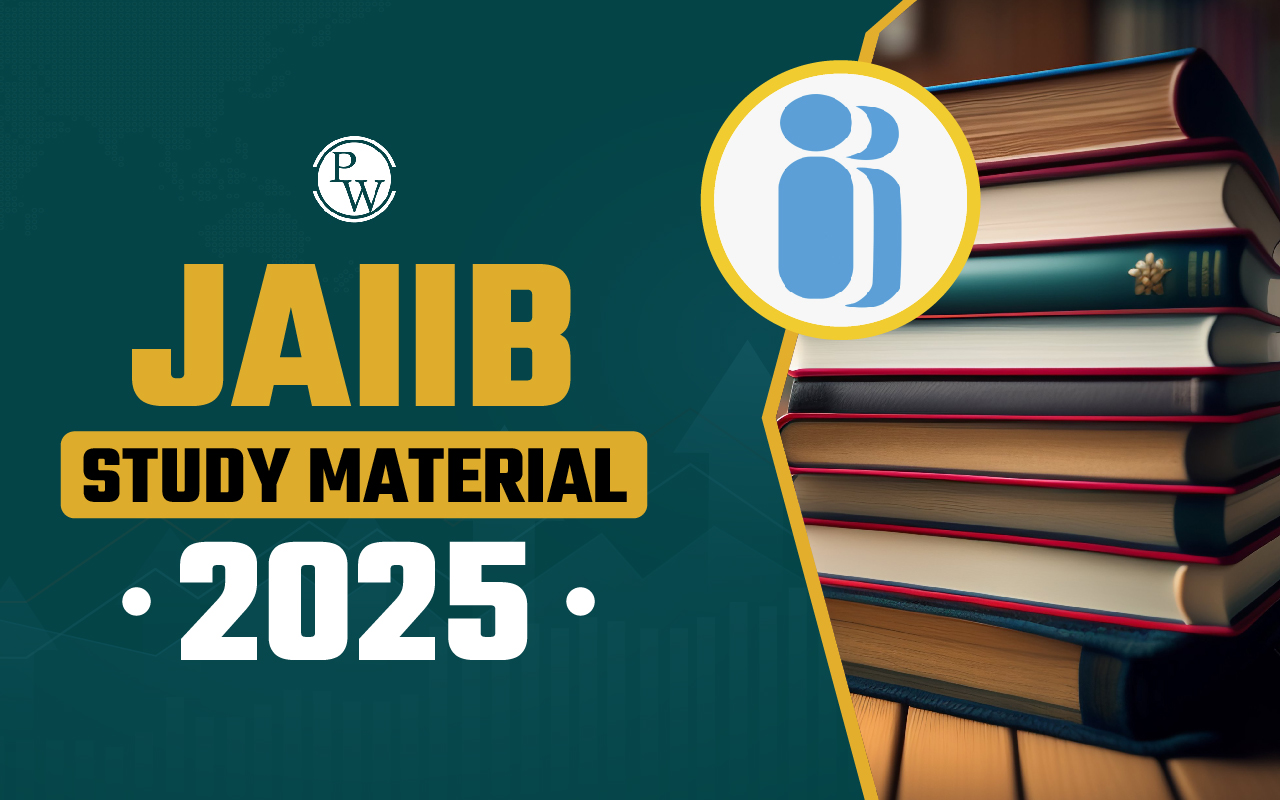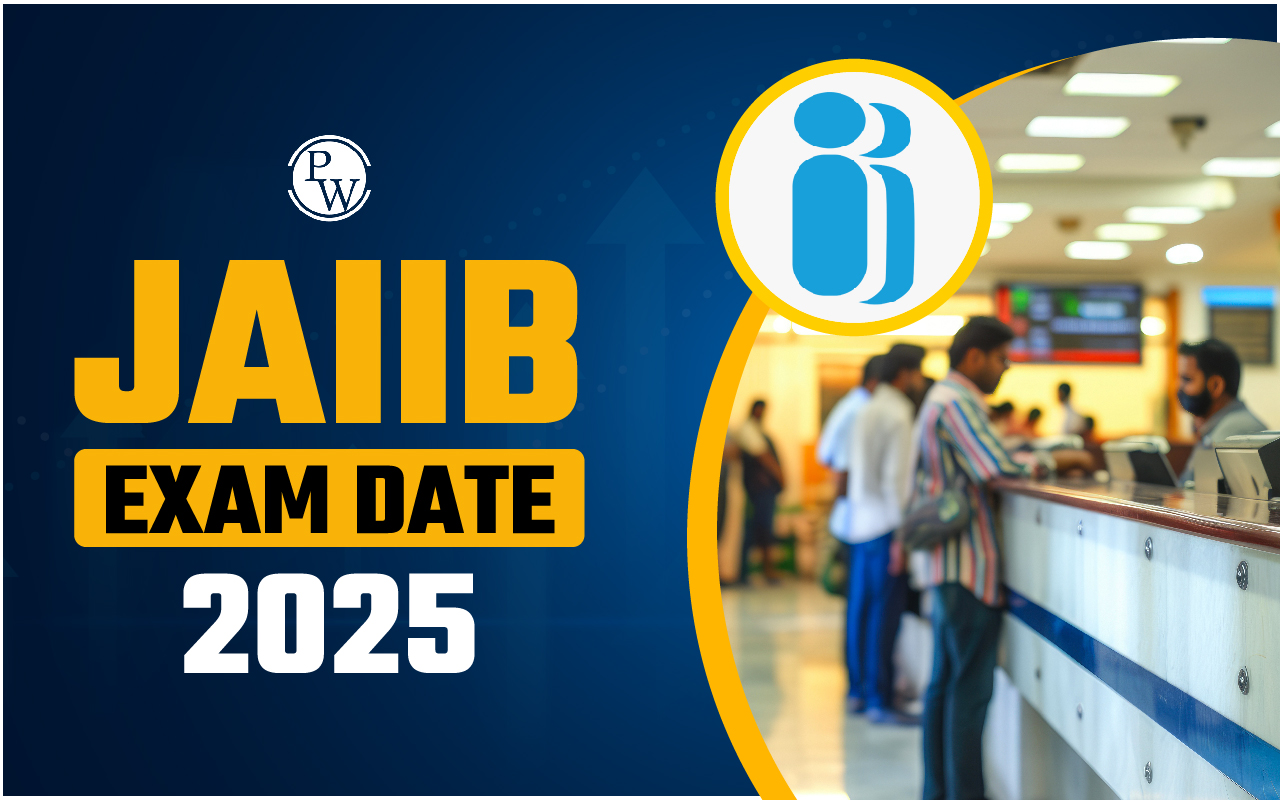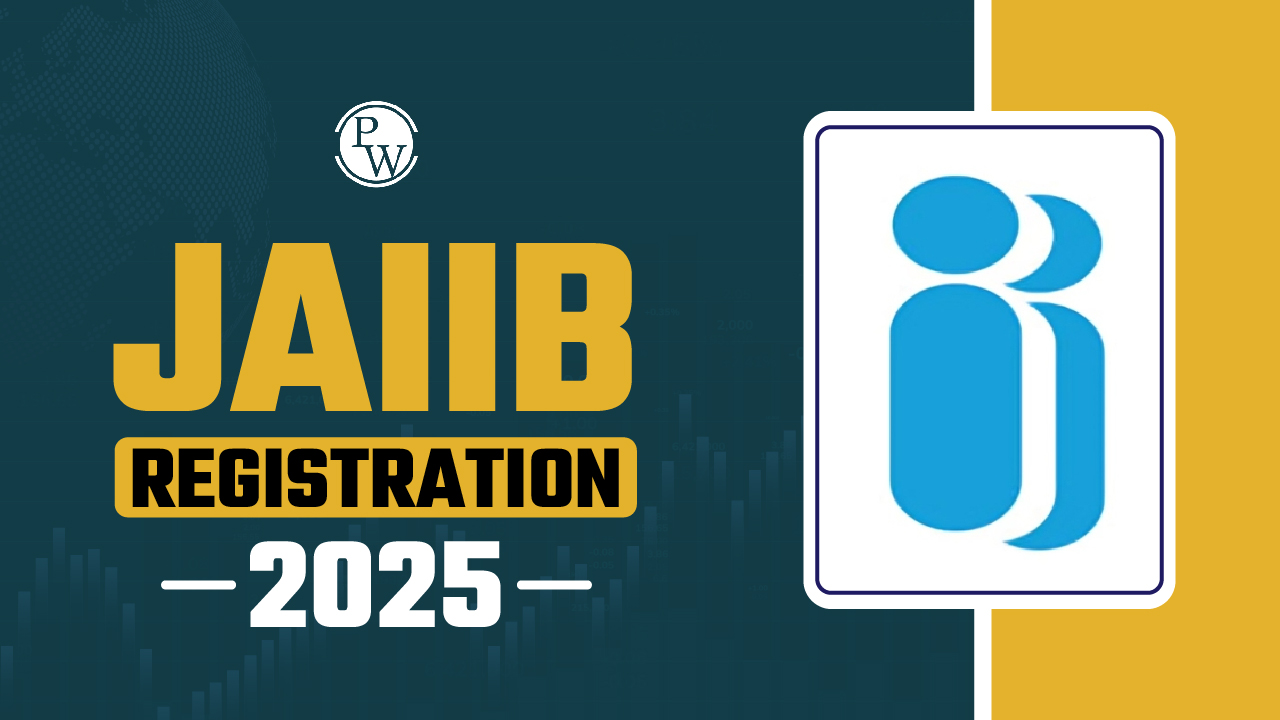

JAIIB RBWM Exam Analysis 2023: The Indian Institute of Banking and Finance (IIBF) has scheduled the JAIIB Retail Banking and Wealth Management (RBWM) Exam for October 29, 2023. Banking and financial sector employees are appearing in the examination across multiple shifts at various centers nationwide. Based on feedback from candidates who have already taken the exam, it has been noted that the paper's difficulty level ranged from Moderate to Tough . Aspirants seeking a detailed analysis of the JAIIB RBWM Exam for October 29th, 2023, can find comprehensive information in the following post.
JAIIB RBWM Exam Analysis 2023, 29th October Exam Review
The Indian Institute of Banking and Finance (IIBF) conducted the fourth paper of JAIIB, which was Retail Banking and Wealth Management, at various examination centers for the banking and financial sector employees. The expert team at PW (Physics Wallah) communicated with the candidates and conducted a comprehensive analysis of the JAIIB RBWM Exam for the October 2023 session, which is now available on the official YouTube channel 'JAIIB CAIIB Wallah'.
JAIIB Exam Analysis 2023 October Cycle
The examination analysis for all four papers of JAIIB 2023 can be accessed through the following links:
| JAIIB Exam Analysis 2023 | |
|---|---|
| Paper | Link |
| Paper 1: Indian Economy and Indian Financial System | Check Here |
| Paper 2: Principles and Practices of Banking | Check Here |
| Paper 3: Accounting and Finance for Bankers | Check Here |
| Paper 3: Retail Banking and Wealth Management | Updated Soon |
JAIIB RBWM Exam Analysis 2023, Shift 1, 29th October
The first shift of the JAIIB RBWM Exam 2023 for the October session has been successfully conducted, and aspirants reported a Moderate level of difficulty. Here is a compilation of important questions and topics that were part of the examination:
- Term Deposits Premature Withdrawal Rules (2 marks): This question likely tested the candidate's knowledge of the rules and conditions governing the premature withdrawal of term deposits in banks.
- DRT/DRAT: DRT stands for Debt Recovery Tribunal, which is a legal body to facilitate the debt recovery process for banks and financial institutions. DRAT refers to Debt Recovery Appellate Tribunal, which hears appeals against the orders of DRT.
- SARFAESI Case Study: SARFAESI Act allows banks and financial institutions to recover their non-performing assets. A case study may involve a real-world scenario related to SARFAESI proceedings.
- ROE (Return on Equity) and ROA (Return on Assets): These are important financial performance ratios for banks. ROE measures a bank's profitability concerning its shareholders' equity, while ROA measures profitability concerning its total assets.
- Gross profit: Gross profit represents the difference between total revenue and the cost of goods sold. In a banking context, it may relate to the revenue generated from various banking operations.
- Net Profit Margin (3 Numerical questions): This would involve calculating the profitability of a bank or a specific banking product by considering the net profit relative to total revenue.
- Account Aggregators: Account Aggregators are entities that facilitate the collection and sharing of financial data among various financial institutions.
- CC Payment: This could relate to credit card payments, their processes, and related terms.
- Education Loan Margin And Security: Education loans typically require a margin (a certain percentage of the total cost) and security. The question might be about understanding these terms and their significance.
- Provisioning: Provisioning in banking involves setting aside funds to cover potential future losses, typically on non-performing assets.
- Which Section Defines Individual: In a banking context, this could refer to a specific section of a banking or legal act that defines who is considered an individual for various purposes.
- Insurance Business: This topic may include questions on how insurance products are offered by banks and the regulations governing insurance services.
- Lok Adalat: Lok Adalats are alternative dispute resolution mechanisms. The question might be about their functioning or significance in banking disputes.
- Banking Ombudsman: This could involve the roles and responsibilities of banking ombudsman in resolving customer complaints.
- PPI Limit: Prepaid Payment Instruments (PPIs) have limits on transactions. The question might pertain to understanding these limits.
- Compounding Interest: Likely a mathematical question related to understanding how compound interest works.
- Case Study Based on Housing Loans: This would involve analyzing a scenario related to housing loans, possibly considering eligibility, interest rates, and repayment options.
- PPI Full Form: PPI refers to Prepaid Payment Instrument. The question is likely about the full expansion of this abbreviation.
- Complaint to Ombudsman Duration Question: The question may be about the time frame within which a complaint must be made to the ombudsman.
- Credit Card Payment After Due Date Credit Free Period: This could relate to understanding how credit card billing cycles work.
- EMI (Equated Monthly Installment): A question about the concept and calculation of EMIs, commonly used for loans.
- Credit Card + FDR: This could pertain to understanding the relationship between credit cards and Fixed Deposit Receipts (FDRs).
- Wealth Management: Likely questions on the principles and services related to wealth management in banks.
- Liability of the bank if the customer paid to some dealers, payment successfully done but dealers not able to deliver goods due to some reasons: This could involve understanding the legal responsibilities of banks in such cases.
- Personal Banking: Questions related to personalized banking services and customer relationships.
- Vehicle Loan - Moratorium Period: Likely a question about vehicle loan terms and conditions, including the concept of a moratorium period.
- FD Matured Not Collected. Interest Rate Applicable?: This could relate to understanding what happens when a fixed deposit matures but isn't collected by the account holder.
- UPI 123 Feature Related To Mobile Phone: UPI 123 may be a new feature related to mobile banking. The question might be about its functionality.
- NEFT (National Electronic Funds Transfer) - How many Parties Involved?: NEFT transactions involve multiple parties, including the remitter, beneficiary, and banks. The question may ask about the number of parties involved.
- Credit Card Transaction, Number Of Parties?: Similar to the NEFT question, this may ask about the parties involved in a credit card transaction.
- Difference Between Virtual Card and Contactless Card - 1 mark question: Likely, this would involve understanding the distinctions between these two types of cards.
- Non-Advantage of Centralized Processing: Centralized processing in banks has several advantages; the question might focus on a potential disadvantage.
- Nomination: Questions about the nomination process in banking, where account holders nominate beneficiaries.
- Section 2(31) Of IT Act-1961: This section of the Income Tax Act, 1961, might define important terms. The question could be about one of these definitions.
- PMS (Portfolio Management Services): Likely questions on the services provided under PMS in banks.
- Locker Facility: Questions related to the provision of locker facilities by banks.
- PM Awas Yojana Maximum Loan Amount: This could involve understanding the maximum loan amount available under the Pradhan Mantri Awas Yojana for housing.
- Role Of Recovery Agents: Understanding the role and responsibilities of recovery agents employed by banks.
- Which Sectors have the least Provisioning?: This question could involve knowledge of sectors with lower provisioning requirements in banking.
- Will: This question likely pertains to the legal document related to the distribution of assets upon a person's death.
- Account Opening Of Blind Person-Is Witness Required Or Not?: Understanding the requirements for the account opening process for visually impaired individuals.
- Branch Profitability: Questions related to evaluating the profitability of bank branches.
This information provides an overview of some of the topics and questions covered in the first shift of the exam.
JAIIB RBWM Exam Analysis 2023, Shift 2, 29th October
Based on feedback from candidates who appeared for the JAIIB RBWM Exam 2023, the 2nd and 3rd shifts of the examination were Moderate . Here’s a summary of some of the topics and questions that were asked in the JAIIB RBWM Exam 2023 on October 29th in Shift 2 and 3.
- Capital Gain Tax: This likely involves questions about the taxation of capital gains from investments, property, or other assets.
- Valuation Of Land: Questions about the methods and factors involved in determining the value of land.
- UPI 123 Pay: UPI 123 Pay could be a new feature or process related to Unified Payments Interface (UPI), a digital payment system in India.
- Wealth Management: Likely questions on the principles and services related to wealth management in banks.
- Investment Management: This would involve understanding how investments are managed by financial institutions.
- Portfolio Management: Questions about managing a collection of investments or assets for a client.
- Leverage Ratio (3-4 questions): Leverage ratio typically refers to the ratio of a bank's capital to its consolidated assets. Several questions suggest a detailed understanding of this topic.
- NFC: Near Field Communication (NFC) is a technology used for contactless payments and data transfer between devices.
- Rule 72, 115, 144: These rules may relate to specific sections or provisions in financial and tax laws. Understanding their application is important.
- ELSS (Equity-Linked Savings Scheme): ELSS is a type of mutual fund that offers tax benefits under Section 80C of the Income Tax Act.
- Not an objective of Sinking Fund: The question may relate to the purposes and objectives of a sinking fund, typically used to pay off debt or replace assets.
- If a director withdraws money from the company account and clears his personal liability, whether it affects net profit or net worth?: This is a nuanced accounting question, likely dealing with the impact on a company's financial statements.
- Not A Key Element Of PMS (Portfolio Management Services): The question likely tests knowledge about key elements involved in portfolio management services offered by financial institutions.
- Middle Office: Questions may relate to the functions and role of the middle office in banking operations.
- Demat Account In Name Of Minor: This could involve understanding the process of opening and operating a Demat (Dematerialized) account for a minor.
- Future Value Factor: Future value factor involves understanding the factors and calculations used to determine the future value of an investment.
- UPI Lite: This could refer to a simplified version or feature of the Unified Payments Interface (UPI).
- Main Purpose Of CRM (Customer Relationship Management): CRM is used to manage and improve relationships with customers. The question likely pertains to its core purpose.
- NFS (National Financial Switch) Is Managed By: This may relate to understanding the entity responsible for managing the National Financial Switch, a central infrastructure for routing financial transactions.
- Co-lending Model: This could relate to understanding the collaboration between banks and non-banking financial institutions in co-lending.
- Bank Uses Credit Score To: This question may involve understanding how banks utilize credit scores in their lending decisions.
- Calculation Of RoI (Return on Investment): This likely involves understanding the calculation of returns on investments.
- Why does ITR Form Have An Assessment Year?: Income Tax Return (ITR) forms are used for a specific assessment year, and this question may involve understanding why that is the case.
- SARFAESI Act: Understanding the Securitization and Reconstruction of Financial Assets and Enforcement of Security Interest (SARFAESI) Act, which banks use to recover non-performing assets.
- Calculation Of RoA (Return on Assets): Understanding the calculation of return on assets, a measure of a bank's profitability relative to its total assets.
- Not Correct About ATM: This may involve identifying an incorrect statement or fact about Automated Teller Machines (ATMs).
- Closed-Ended MF Scheme (Mutual Fund Scheme): Closed-end mutual funds have a fixed number of units and are traded on the stock exchange. The question might relate to these schemes.
- Physical Delivery Channels: Questions may involve understanding the various physical delivery channels used in banking services.
- ATM Free Transaction: This likely involves understanding how free transactions work on ATMs.
- DSA (Direct Selling Agent) Primarily Engaged In: Understanding the primary role and responsibilities of a Direct Selling Agent in banking.
- Mutual Fund Services: This may relate to the services offered by mutual funds and their various types.
- Account Aggregator: Understanding the role and function of account aggregators in managing financial data.
- MIS (Management Information System): This could involve questions about the purpose and functions of MIS in banking.
- Which Of The Following Is Not An Intermediator?: Identifying entities or roles that are not considered intermediaries in the financial sector.
- Sovereign Gold Bond (3 Questions): Understanding various aspects of sovereign gold bonds, including their features and benefits.
- DRAT: Debt Recovery Appellate Tribunal (DRAT) is involved in hearing appeals against orders passed by the Debt Recovery Tribunals (DRTs).
- MKIS (Marketing Information System): This could relate to questions about the functions and benefits of a marketing information system.
- Numerical on Operating Profit: Solving numerical problems related to operating profit.
- TReDs (Trade Receivables Discounting System): Understanding the concept and functioning of TReDs, which deals with financing trade receivables.
- WDV Depreciation: Questions may involve calculating depreciation using the Written Down Value (WDV) method.
JAIIB RBWM Exam Analysis 29th October, All Shifts: Video Link
In the video, our PW Faculties offer an in-depth analysis of the JAIIB RBWM Exam that took place on October 29th in Shift 1, 2 & 3 . As part of this JAIIB RBWM Exam Analysis 2023, candidates have the unique opportunity to engage directly with our experienced faculties. They can ask questions and seek clarification on various aspects of the examination. This analysis is designed to provide valuable insights and address any doubts or questions candidates may have had during the exam, ultimately assisting them in gaining a better understanding of their performance.
JAIIB RBWM Exam Analysis 2023 FAQs
Q1. What is the JAIIB RBWM Exam?
Q2. What is the purpose of the JAIIB RBWM Exam Analysis?
Q3. How many papers are there in the JAIIB certification, and which one is the RBWM paper?
Q4. What are some common topics covered in the JAIIB RBWM Exam?
Q5. How can I prepare for the JAIIB RBWM Exam?


